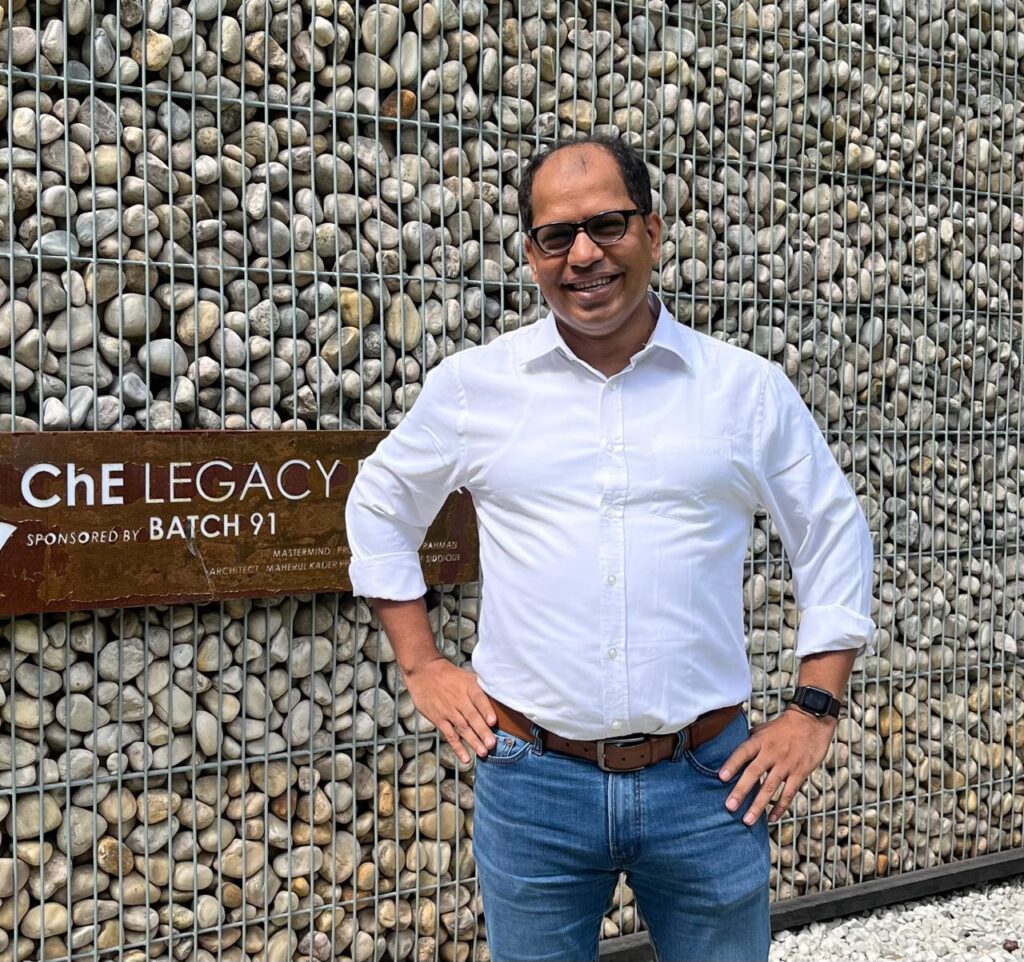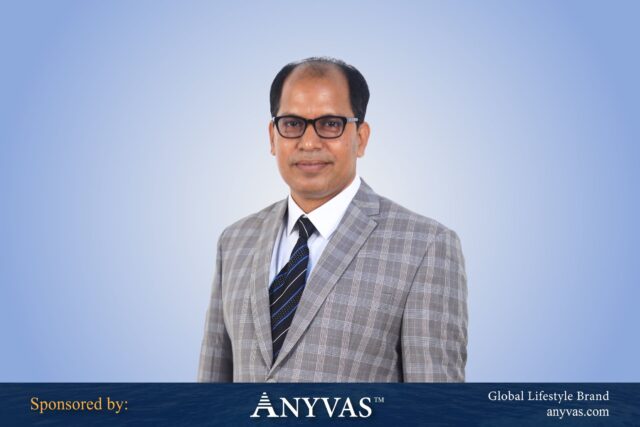Mohammed Zia Uddin
Supply Director
Reckitt, BD & SL Cluster
Showcasing Mohammed Zia Uddin, an accomplished Supply Director at Reckitt overseeing operations in Bangladesh and Sri Lanka. With a proven track record of optimizing supply chains for efficiency and growth, Mohammed brings unparalleled expertise to drive success in consumer goods industries. Explore his insights for transformative supply management strategies.
Let’s learn about his journey.

Mr. Mohammed Zia Uddin, please share your professional and academic peregrination for our readers!
I began my professional journey at Unilever Bangladesh Ltd, then known as Lever Brothers Bangladesh Ltd, in 2004. I started as a production officer in the manufacturing department, specifically in the Pan room (soap processing) department. My responsibilities included overseeing soap processing, oil bleaching, glycerin production, and the overall optimization of manpower, machinery, and methods.
After two years in production, I transitioned to the role of project manager for soaps. In this role, I worked on transforming traditional soap-making (Pan processing) to automated centrifuge operation and commissioned new evaporators. A year later, I was promoted to the position of soap processing manager at Unilever. After five and a half years, I contemplated whether to continue in manufacturing or explore other avenues. I decided to move to supply chain management, but Unilever requested me to wait for an opening in the supply chain department in Dhaka.
In late 2009, I left Unilever and joined Shah Cement Industries, one of the largest Strategic Business Units (SBUs) of AKG (Abul Khair Group), as the Supply Chain Development Manager. My primary responsibilities were planning and logistics operation. At Shah Cement, I implemented several innovative ideas like route optimization, river transport operation, and vehicle tracking to enhance customer service efficiency and responsiveness.
Meanwhile, Abul Khair Group, the parent company of Shah Cement, acquired a new ceramic industry and asked me to serve as the Plant In-charge. Given my experience in manufacturing, planning, and logistics, I accepted the challenge to run the factory and enhance its capacity by 200-300% within three years. This role provided me with the opportunity to explore different technologies in various countries and gain hands-on knowledge in international sourcing. During my tenure, I implemented many things such as automated casting, robotic spray, and continuous kiln for capacity expansion with minimal investment.
During this time, I also enrolled in an Executive MBA program at IBA, Dhaka University. Balancing my role as plant manager and my studies was extremely challenging, especially since the factory was located far from the city area. Later, I joined Holcim Cement Bangladesh Limited in procurement operation Lead and streamlined the P2P (Purchase to Pay) process in SAP.
After approximately two years at Holcim, I joined Reckitt in mid-2017 as a supply services manager at Reckitt-Benckiser Bangladesh. I was promoted to Head of Supply Services, overseeing Bangladesh and Sri Lanka, after just 11 months.
In addition to my professional roles, I have also worked as an adjunct faculty for several renowned universities, including the Institute of Business Administration Dhaka University, East West University, United International University, and East Delta University.
Regarding my educational background, I completed my graduation from Bangladesh University of Engineering & Technology in chemical engineering and earned my MBA from IBA Dhaka University. I am a certified supply chain manager from ISCEA (International Supply Chain Education & Alliance) and FCILT (Fellow Chartered Institutes of Logistics).

What strategies do you implement as Supply Director at Reckitt to optimize the supply chain and ensure timely delivery of products to your markets?
As the Supply Director at Reckitt, I implement several strategies to optimize the supply chain and ensure the timely delivery of products to our markets.
Firstly, I have worked to make Reckitt’s BD-SL supply chain agile, capable of adapting to any changes in external forces. We have built capabilities at our manufacturing site to increase efficiency by improving the Overall Equipment Efficiency (OEE) of our plants. Several projects have been undertaken to increase the OEE.
Secondly, we have significantly invested in our planning and logistics capacity to reduce net working capital, increase efficiency, and maintain service levels. We have introduced new planning tools to decrease out-of-stock situations and reduce the quantity of slow-moving and obsolete products.
Thirdly, we have built a resilient logistics infrastructure that is agile and ensures on-time delivery of our products. While increasing efficiency, we have also embedded sustainability and responsibility into our operations by investing heavily in environmental protection, human rights, and sustainable supplier policies.
Lastly, we have developed a people strategy aimed at nurturing future leaders of Reckitt who can deliver sustained growth. This strategy is a crucial part of our commitment to creating a sustainable and resilient supply chain.
In summary, my strategy as Supply Director at Reckitt involves a combination of agility, efficiency, sustainability, and people development. These elements work together to optimize our supply chain and ensure the timely delivery of products to our markets.
Can you discuss the role of innovation in supply chain management at Reckitt, and how it contributes to maintaining a competitive edge in the industry?
Firstly, we harness the power of technology and automation to boost efficiency and precision. By investing in the automation of production lines and reducing human dependency, we’ve managed to expedite our product delivery process. We’ve also implemented analytics in our decision-making and planning tools to enhance efficiency. As a company, Reckitt values innovation and is always on the lookout for new projects that can give us a competitive edge.
Secondly, Reckitt has set ambitious sustainability targets such as:
• A 50% reduction in our product carbon footprint by 2030
• A 65% reduction in greenhouse gas (GHG) emissions in our operations by 2030
• A 25% reduction in energy use (per ton of production) by 2025 vs 2015
• Achieving 50% of net revenue from more sustainable products by 2030
We are committed to developing products that make a difference by using fewer, more sustainable materials during manufacturing and requiring less energy and water during use. This commitment to innovation not only contributes to our corporate social responsibility but also appeals to the growing consumer base that values sustainability. These strategies are integral to maintaining our competitive edge in the industry.

How do you navigate challenges such as fluctuating demand, supply chain disruptions, and regulatory changes while managing Reckitt’s supply operations?
Navigating challenges such as fluctuating demand, supply chain disruptions, and regulatory changes while managing Reckitt’s supply operations requires strategic decision-making and agility.
Over the past three years, we’ve encountered demand surges, supply shocks, and cost inflation. These fluctuations have exerted immense pressure on our supply chain. The pandemic disrupted demand and supply for two years, while the war in Ukraine led to raw material and energy shortages in 2021.
To navigate these fluctuations, we’ve made clear strategic decisions:
- Increasing Supplier Base: We’ve expanded our supplier base, which has helped meet short-term demand and also reduce cost.
- Localization of Suppliers: We’ve increased the localization of suppliers to reduce lead time and uncertainty.
- Forecasting Accuracy: We’ve used analytics to increase forecasting accuracy, which in turn increases inventory turnover.
- Regulatory Changes: Regulatory changes are inevitable. We stay agile by closely monitoring regulations and adapting our processes accordingly.
We work closely with our business partners, sharing a unified goal of creating a better world. Together, we tackle challenges head-on, striving for excellence in quality and sustainability. This approach allows us to maintain a resilient and efficient supply chain, even in the face of significant challenges.
Mr. Zia Uddin In what ways do you collaborate with internal departments such as marketing, finance, and R&D to align supply chain strategies with overall business objectives at Reckitt?
Collaboration with internal departments is crucial for aligning supply chain strategies with overall business objectives at Reckitt. We foster a common understanding of company objectives and requirements across departments like sales, marketing, and finance. To ensure alignment, we establish clear channels of communication between supply chain, marketing, finance, and R&D, and regularly share insights, challenges, and progress. We create cross-functional teams that include representatives from different departments. These teams work together on specific supply chain projects, ensuring diverse perspectives and expertise are brought to the table. We have always prioritized business partnering and approach problems with a solution-oriented mindset rather than viewing them as obstacles. As we believe we are delivering much-needed products to consumers, it becomes our responsibility to work together towards a common goal of protecting, nurturing, and healing in the relentless pursuit of a cleaner and healthier world.
Can you discuss any recent supply chain optimization projects or initiatives at Reckitt that have resulted in significant cost savings or operational improvements?
At Reckitt, we are always undertaking numerous projects to increase efficiency. Here are a few recent initiatives:
- In Dhaka, we relocated and consolidated the operations of two warehouses into one. This strategic move has resulted in reduced logistics costs and improved service levels.
- Furthermore, we are currently working on a Zero Liquid Discharge plant at our factory. This initiative underscores our commitment to the environment and sustainable operations.
- In Sri Lanka, we transitioned from a Purchase-to-Pay (P2P) model to a Cost of Conversion model for our external manufacturers. This shift has improved our visibility on inventory, helped us avoid stock-outs, and enhanced our responsiveness.
These projects collectively contribute to our ongoing efforts to optimize our supply chain and enhance operational efficiency. We believe that continuous improvement is key to maintaining our competitive edge in the industry.
Mr. Mohammed Zia Uddin, please say something to the readers!
I would like to share with the readers that I didn’t study supply chain management before starting my career. However, I believe our youth must have the opportunity to learn about this field during their college years. Prominent universities such as IBA, NSU, CUET, UIU, EWU, KUET, BUET, DU, and others are regularly organizing seminars on supply chain management. There are also supply chain-based case competitions like the ISCEA PTAK Prize and Supply Chain Alliance.
I’ve had the privilege of sharing my experiences in practitioner’s sessions at various universities like IBA, EWU, UIU, ULAB, BBSMRMU, IMT Hyderabad, and institutes like DCE-BUET. I encourage all young supply chain aspirants to seize these learning opportunities and strive for excellence in this field.
In addition, supply chain aspirants need to focus on communication & soft skills, agility in their mind.

Quick Chat With Mohammed Zia Uddin
The most outstanding achievement of your life as of now:
Leadership Excellence Award in 2022 for Supply Chain & Logistics arranged by LFB and Global Supply Chain & Logistics award IEOM(Industrial Engineering & Operations Management) society in 2023
The greatest philosopher in your view:
Prophet Muhammad (SAW)
Your Icon:
Muhammad Yunus
Name the most influential books you have read:
Good to Great
Your greatest fear:
AI or any other disruptive innovations can diminish many jobs
Best piece of advice you’ve received:
Believe in Yourself
You in only three words:
Punctuality, Discipline & Hard working
The InCAP: Thank you, Mr. Mohammed Zia Uddin! It’s a glittering conversation with you!
Mohammed Zia Uddin: My pleasure! Wish you all the best! Thank you.
To read more about Professional’s stories, Please Click Here!











